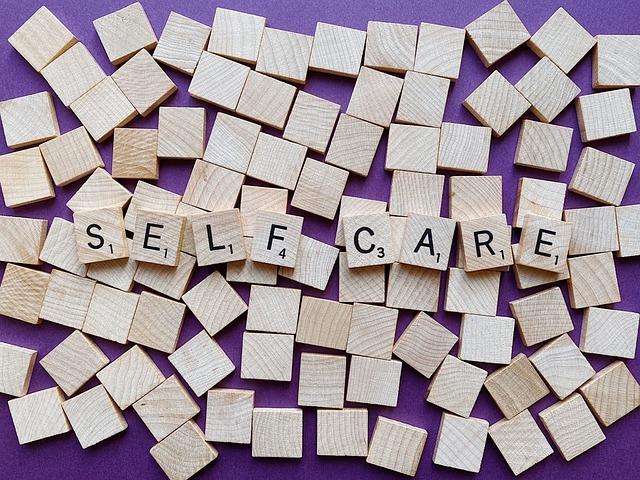In the intricate tapestry of human existence, challenges are the threads that weave unpredictability into our lives. From personal setbacks to global crises, the ability to navigate adversity is a skill as ancient as humanity itself. Yet, the science of resilience—our capacity to bounce back from hardships—remains a fascinating frontier of exploration. In this article, we delve into the habits that empower individuals to not only endure but thrive amidst life’s trials. By unraveling the psychological and physiological mechanisms that underpin resilience, we uncover the practices that fortify our minds and bodies, transforming obstacles into opportunities for growth. Join us as we explore the art and science of resilience, and discover the habits that can help us overcome challenges with grace and grit.
Understanding Resilience: The Psychological Framework
Resilience, at its core, is the psychological armor that shields individuals from the adversities of life. It is not an innate trait but a skill that can be developed and strengthened over time. The framework of resilience involves several key components that work together to foster a robust mental state. Among these components are emotional regulation, cognitive flexibility, and social support. Emotional regulation allows individuals to manage their emotions effectively, preventing them from being overwhelmed by stress. Cognitive flexibility is the ability to adapt one’s thinking to new situations, which is crucial for problem-solving and innovation. Social support provides a network of relationships that offer encouragement and assistance, acting as a buffer against life’s challenges.
Building resilience involves cultivating certain habits and mindsets that reinforce these components. Consider integrating the following practices into your daily routine to enhance your resilience:
- Mindfulness and Meditation: Regular practice can improve emotional regulation by fostering awareness and acceptance of present experiences.
- Positive Reframing: Challenge negative thoughts by looking for the silver lining in difficult situations, enhancing cognitive flexibility.
- Strengthening Connections: Invest time in nurturing relationships with family, friends, and community to build a strong support network.
- Setting Realistic Goals: Break down larger tasks into manageable steps, providing a sense of accomplishment and direction.

Building Mental Fortitude: Daily Practices for Strength
Developing resilience is akin to building a muscle; it requires consistent effort and dedication. Incorporating daily practices that enhance mental fortitude can significantly improve your ability to navigate life’s challenges. Here are some key habits to consider:
- Mindfulness Meditation: Dedicate a few minutes each day to mindfulness meditation. This practice helps you stay present and cultivates a non-judgmental awareness of your thoughts and emotions, fostering a resilient mindset.
- Physical Activity: Engage in regular physical exercise. Physical activity releases endorphins, which can boost your mood and provide the energy needed to tackle obstacles.
- Journaling: Keep a journal to document your thoughts and experiences. Writing down your challenges and how you overcame them reinforces your problem-solving skills and builds confidence.
- Gratitude Practice: Each day, list three things you are grateful for. This simple habit shifts your focus from what is lacking to what is abundant, enhancing your overall perspective.
Incorporating these practices into your daily routine can gradually strengthen your resilience, equipping you to face adversity with grace and determination. Remember, the key is consistency and a willingness to adapt and grow.
Harnessing the Power of Mindfulness and Meditation
Incorporating mindfulness and meditation into daily routines can significantly enhance our ability to navigate life’s obstacles with grace and composure. Research has shown that these practices help in cultivating a resilient mindset by fostering emotional regulation, reducing stress, and enhancing overall well-being. By dedicating even a few minutes each day to mindfulness, individuals can develop a heightened awareness of their thoughts and emotions, allowing them to respond to challenges with clarity and calm.
- Enhanced Focus: Regular meditation improves concentration and attention span, making it easier to tackle complex tasks and solve problems efficiently.
- Emotional Stability: Mindfulness practices help in recognizing and managing emotions, leading to improved interpersonal relationships and decision-making.
- Stress Reduction: By promoting relaxation and reducing anxiety, these habits can decrease cortisol levels, resulting in a more balanced mental state.
Embracing mindfulness and meditation as part of a daily regimen not only fortifies mental resilience but also nurtures a more profound connection with oneself, paving the way for personal growth and transformation.

Cultivating a Supportive Environment: Community and Connection
In the intricate tapestry of resilience, community and connection serve as the vibrant threads that bind us together, offering strength and solace. Scientific studies underscore the significance of social networks in enhancing our capacity to cope with adversity. When individuals engage with a supportive community, they experience a buffer against stress, leading to improved mental health and well-being.
To cultivate this environment, consider incorporating these practices into your daily life:
- Reach out regularly: Make it a habit to check in with friends and family, even if it’s just a quick message or phone call.
- Participate in group activities: Join clubs, attend workshops, or volunteer in community events to build meaningful connections.
- Offer support: Be present for others, listen actively, and provide assistance when needed, fostering a reciprocal relationship.
- Create safe spaces: Encourage open dialogue in your circles where individuals feel heard and valued.
By nurturing these bonds, we not only bolster our resilience but also contribute to a thriving, interconnected society.
